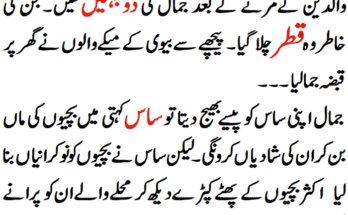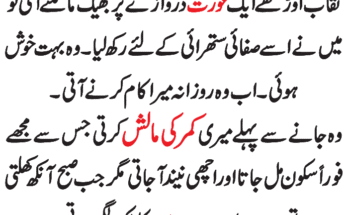Explore the fascinating journey of Queen Elizabeth from her youth to becoming a queen. Learn when and how young Elizabeth realized her destiny, along with intriguing insights into her life.
Introduction
Queen Elizabeth II’s Platinum Jubilee marks a remarkable milestone in British history, celebrating her incredible reign of 70 years. As we commemorate this historic event, it’s intriguing to delve into her early life and explore the pivotal moment when young Elizabeth realized she would one day become Queen. This article takes you on a journey through time, uncovering the fascinating story behind her ascension to the throne.
The Early Years of Princess Elizabeth
A Royal Heritage
Princess Elizabeth Alexandra Mary Windsor, born on April 21, 1926, was destined for greatness from the moment she entered this world. As the first child of the Duke and Duchess of York, who later became King George VI and Queen Elizabeth, she was born into a family steeped in royal tradition.
A Normal Childhood
Despite her royal lineage, Princess Elizabeth’s early years were surprisingly ordinary. She played with toys, attended school, and had a close-knit family. Growing up, she was affectionately known as “Lilibet” within the family, a name given to her because she had difficulty pronouncing her own name as a child.
Observing Her Parents
One could argue that Princess Elizabeth’s realization of her future role began with her observations of her parents’ duties and responsibilities. King George VI and Queen Elizabeth took their roles seriously, often involving their children in royal events. These experiences likely planted the seeds of understanding in young Elizabeth’s mind.
The Abdication Crisis
Edward VIII’s Abdication
The turning point in Princess Elizabeth’s life came in 1936 when her uncle, King Edward VIII, abdicated the throne to marry Wallis Simpson, an American divorcée. This unprecedented event sent shockwaves through the royal family and the nation, as it thrust the Duke of York (Elizabeth’s father) into the unexpected role of King George VI.
A Sudden Change
For Princess Elizabeth, who was just ten years old at the time, this was a life-altering event. It meant that her father was now King, and she was the heir presumptive to the throne. The carefree days of her childhood were replaced by a growing awareness of her future responsibilities.
The Weight of the Crown
Young Elizabeth must have realized the immense burden and scrutiny that would accompany her role as the future Queen. The abdication crisis served as a poignant lesson in duty, sacrifice, and the unwavering commitment required of a monarch.
World War II and Elizabeth’s Contribution
A Nation at War
World War II further shaped Princess Elizabeth’s understanding of her destiny. With the war raging across Europe, the royal family played a crucial role in boosting the nation’s morale. Princess Elizabeth and her sister, Princess Margaret, famously made radio broadcasts to children affected by the conflict.




The Sense of Duty
These wartime experiences deepened Elizabeth’s sense of duty and strengthened her resolve to serve her country. She recognized that being a future Queen meant not just ceremonial duties but also a responsibility to her people during times of crisis.
Honing Leadership Skills
During the war, Princess Elizabeth joined the Auxiliary Territorial Service (ATS) as a driver and mechanic. This hands-on experience allowed her to develop leadership skills and a practical understanding of the armed forces, which would serve her well in her future role as Commander-in-Chief of the British Armed Forces.
The Education of a Future Queen
Rigorous Education
Princess Elizabeth’s education was tailored to prepare her for her future role. She had private tutors and received instruction in subjects such as constitutional history and government. This formal education was essential in equipping her with the knowledge she would need as Queen.
Mentorship by King George VI
King George VI took a keen interest in his daughter’s education, ensuring that she received the best possible preparation for her role. His guidance and wisdom were invaluable in shaping her understanding of the monarchy and the responsibilities it entailed.
The Coronation of Queen Elizabeth II
Ascension to the Throne
On February 6, 1952, King George VI passed away, and Princess Elizabeth became Queen Elizabeth II at the age of 25. This momentous event marked the culmination of years of preparation and self-discovery.
The Journey to Queenship
Queen Elizabeth’s journey from a young girl with royal lineage to the reigning monarch was a remarkable one. Her realization of her destiny was a gradual process shaped by her family, her experiences, and her sense of duty.
FAQs
When did Princess Elizabeth first understand she would become Queen?
Princess Elizabeth’s understanding of her future role as Queen began to crystallize during the 1936 abdication crisis when her uncle, King Edward VIII, abdicated the throne. She was just ten years old at the time.
What role did World War II play in Princess Elizabeth’s preparation for queenship?
World War II played a significant role in Princess Elizabeth’s preparation for queenship. Her involvement in wartime activities, such as making radio broadcasts and serving in the ATS, honed her sense of duty and leadership skills.
How did King George VI influence Princess Elizabeth’s education?
King George VI took a keen interest in his daughter’s education, ensuring she received a rigorous and well-rounded education that included subjects like constitutional history and government.
What was the significance of Queen Elizabeth’s coronation?
Queen Elizabeth II’s coronation in 1953 marked the culmination of her journey from a young princess to a reigning monarch. It symbolized her commitment to her role and her dedication to serving her country.
How did Princess Elizabeth’s family shape her understanding of queenship?
Princess Elizabeth’s parents, King George VI and Queen Elizabeth, and her observations of their roles in the monarchy played a vital role in shaping her understanding of queenship and her sense of duty.
Did Princess Elizabeth have any reservations about becoming Queen?
While the young Elizabeth may have had moments of doubt and anxiety about her future as Queen, her sense of duty and commitment to her country ultimately prevailed, guiding her through the challenges she would face.
Conclusion
The journey of Queen Elizabeth II from a young princess to a beloved monarch is a testament to her unwavering commitment to duty and service. Her realization of her destiny as Queen was a gradual process, shaped by her family, her experiences, and the extraordinary times in which she lived. As we celebrate her Platinum Jubilee, we honor not only her remarkable reign but also the young Elizabeth who, against all odds, embraced her destiny with grace and determination.




